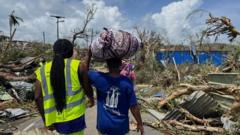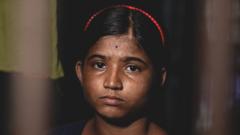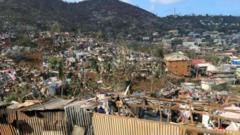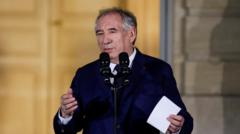With a history of peaceful transitions, the upcoming election will unveil how citizens' pressing issues, including debt, inflation, and unemployment, influence their voting decisions.
Ghana's Upcoming Election: Key Issues Revealed in Seven Charts

Ghana's Upcoming Election: Key Issues Revealed in Seven Charts
As Ghana approaches its ninth general election, economic challenges and youth concerns dominate the political landscape.
Ghana is gearing up for its ninth general election since the reintroduction of multiparty politics in 1992. In that time, the country has experienced three peaceful transitions of power with the two principal parties—the National Democratic Congress (NDC) and the New Patriotic Party (NPP)—each holding the presidency for 16 years. As the NPP seeks an unprecedented third consecutive term, recent challenges have emerged as pivotal election themes.
Inflation has significantly impacted Ghanaians' finances, particularly after a global spike beginning in early 2022. The inflation rate peaked at 54.1% in December 2022 before declining, yet basic food items like eggs and tomatoes saw their prices more than double from the previous year. Along with an increase in the cost of living, many Ghanaians have slipped into poverty, reflected in World Bank reports indicating that living standards have deteriorated.
The government's financial constraints deepened following a debt default in 2022, leading to ongoing negotiations with international creditors and engagement with the International Monetary Fund for a bailout. President Nana Akufo-Addo has asserted that outside factors contributed to the economic crisis; however, opposition critics assert that government mismanagement is to blame. The nation’s debt obligations have increased, requiring over 70% of government revenue just to service existing loans.
Unemployment stands at an alarming rate, with a notable increase in joblessness among the youth, especially those aged 15-24 facing nearly 30% unemployment. This demographic is expected to bear considerable influence in the upcoming elections as they express their priorities and grievances regarding job opportunities.
The mining sector, particularly gold, remains a central topic, with small-scale and illegal mining raising environmental concerns even as Ghana benefits from high global gold prices—exporting $5.2 billion worth in 2023. Other natural resources such as oil, diamonds, and cocoa further bolster the economy, leading to an overall growth that has halved extreme poverty over the last three decades.
However, after peaking in 2017, the average income has stagnated, making the present economic situation vital to voters. Historically, Ghana's elections have been closely contested, often decided by narrow margins, fostering a stable democratic environment despite challenges.
As Ghanaians prepare for their votes on December 7, the focus will likely remain on immediate conditions rather than long-term progress, reflecting a demand for tangible improvements in their daily lives. The results of this election are expected to be announced within three days post-voting.
Inflation has significantly impacted Ghanaians' finances, particularly after a global spike beginning in early 2022. The inflation rate peaked at 54.1% in December 2022 before declining, yet basic food items like eggs and tomatoes saw their prices more than double from the previous year. Along with an increase in the cost of living, many Ghanaians have slipped into poverty, reflected in World Bank reports indicating that living standards have deteriorated.
The government's financial constraints deepened following a debt default in 2022, leading to ongoing negotiations with international creditors and engagement with the International Monetary Fund for a bailout. President Nana Akufo-Addo has asserted that outside factors contributed to the economic crisis; however, opposition critics assert that government mismanagement is to blame. The nation’s debt obligations have increased, requiring over 70% of government revenue just to service existing loans.
Unemployment stands at an alarming rate, with a notable increase in joblessness among the youth, especially those aged 15-24 facing nearly 30% unemployment. This demographic is expected to bear considerable influence in the upcoming elections as they express their priorities and grievances regarding job opportunities.
The mining sector, particularly gold, remains a central topic, with small-scale and illegal mining raising environmental concerns even as Ghana benefits from high global gold prices—exporting $5.2 billion worth in 2023. Other natural resources such as oil, diamonds, and cocoa further bolster the economy, leading to an overall growth that has halved extreme poverty over the last three decades.
However, after peaking in 2017, the average income has stagnated, making the present economic situation vital to voters. Historically, Ghana's elections have been closely contested, often decided by narrow margins, fostering a stable democratic environment despite challenges.
As Ghanaians prepare for their votes on December 7, the focus will likely remain on immediate conditions rather than long-term progress, reflecting a demand for tangible improvements in their daily lives. The results of this election are expected to be announced within three days post-voting.






















